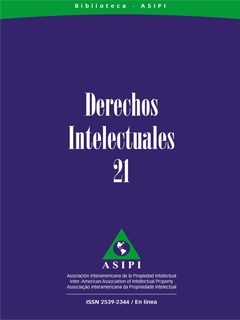Intellectual Rights 21
Since its founding in 1964, ASIPI has advocated avant-garde thinking in favor of Intellectual Property rights. For this reason, ASIPI promotes the search for new and more effective ways of generating and disseminating knowledge that contribute to the study and deepening of current issues, which in turn stimulate creative capacity in our countries.
We are immersed in an internationally intertwined scheme, with a growing generation immersed in a digital apogee, which permeates all spheres of knowledge, professions, culture and the economy. Naturally, Intellectual Property does not escape from this reality in which the rules of the game change in the blink of an eye, forcing us to constantly re-educate ourselves.
Thanks to the perseverance and excellent work of those who have preceded us, our Association has remained in constant evolution, providing tools to face emerging challenges and controversies in the world of IP, promoting a culture of research and analysis.
That is why with satisfaction, I present this new volume of the publication "Intellectual Rights", which has been prepared with great impetus and dedication for all our readers.



